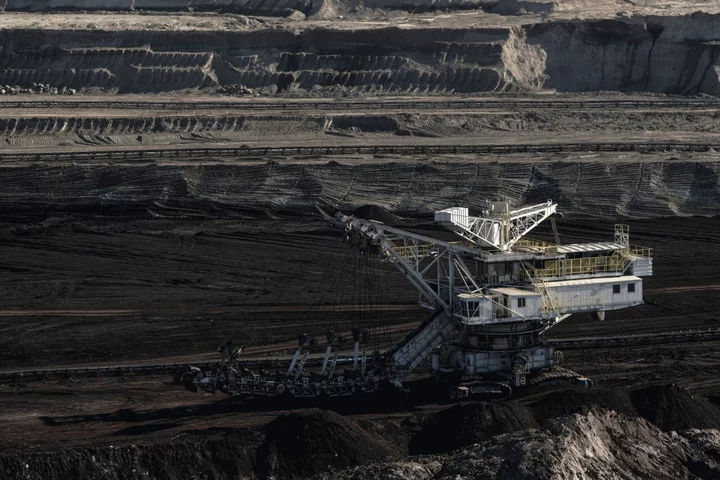Poland’s next government wants to accelerate the country’s exit from coal and boost green power sources in an overhaul of the current energy plan, said Paulina Hennig-Kloska, a lawmaker tipped to be climate minister.
The incoming ruling coalition’s biggest party, Civic Platform sees renewable energy sources accounting for 68% of energy production and a ban on coal in heating of households beyond 2030. Its smaller ally Polska 2050, of which Hennig-Kloska is a member, is even more ambitious.
“Maybe this could be achieved even sooner?” Hennig-Kloska told Bloomberg, citing her party’s plans to ditch coal completely by 2040 and to make Poland carbon neutral a decade later.
Those ambitions contrast with the stance by the outgoing Law and Justice party, which criticized the European Union for going too fast toward achieving climate neutrality, and challenged some of the EU’s Green Deal regulations. The government wanted to keep coal until 2049 with renewables accounting for less than a half of power production in 2030.
Poland, the EU’s most coal-reliant member, currently generates around 70% of its electricity from fossil fuels. With carbon dioxide emissions weighing more and more on the energy price, the country is investing in offshore wind and nuclear power to replace aging coal-fired plants, but most of the new capacity will come online next decade at the earliest. The new cabinet is seeking to speed up that process.
“At the climate ministry a new, post-Law and Justice energy policy will have to be written,” Hennig-Kloska said. “We want to bet on renewables and nuclear energy and reduce emissions.” She declined to comment on media reports that she’ll become the next climate minister.
Hennig-Kloska said protecting consumers from the impact of high energy prices is also going to be a priority for the new cabinet. The measures are likely to cost dozen or so billion of zlotys and the coalition is likely to file a relevant bill in parliament as early as on Tuesday, she said.
Coal Spin-Off
Other urgent decisions by the new administration include freeing up investment in onshore wind and restoring a mandatory rule for energy companies to sell electricity via an exchange, she said. The next government of pro-EU opposition parties, which won Oct. 15 elections, is expected to take office in mid-December.
The incoming coalition will also face the unfinished business of spinning off coal assets from state-controlled power utilities. The Law & Justice government had planned to pool coal-fired power plants into a separate entity to help energy companies regain access to financing.
Hennig-Kloska said she is in favor of an asset spin-off in general, but opposes the plan to transfer all of them to a single state entity, known as NABE.
“The coal units will become a bigger and bigger problem in the future and cost of coal-generated electricity will keep rising,” she said. However, “the NABE project in the current form shouldn’t be continued, because we can’t create a new monopoly.”

